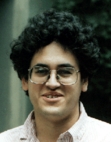John C. Baez's Blog, page 63
October 22, 2017
Applied Category Theory 2018 — Adjoint School

The deadline for applying to this ‘school’ on applied category theory is Wednesday November 1st.
• Applied Category Theory: Adjoint School: online sessions starting in January 2018, followed by a meeting 23–27 April 2018 at the Lorentz Center in Leiden, the Netherlands. Organized by Bob Coecke (Oxford), Brendan Fong (MIT), Aleks Kissinger (Nijmegen), Martha Lewis (Amsterdam), and Joshua Tan (Oxford).
The name ‘adjoint school’ is a bad pun, but the school should be great. Here’s how it work...
October 6, 2017
Vladimir Voevodsky, 1966 — 2017
Vladimir Voevodsky died last week. He won the Fields Medal in 2002 for proving the Milnor conjecture in a branch of algebra known as algebraic K-theory. He continued to work on this subject until he helped prove the more general Bloch–Kato conjecture in 2010.
Proving these results—which are too technical to easily describe to nonmathematicians!—required him to develop a dream of Grothendieck: the theory of motives. Very roughly, this is a way of taking the space of solutions of some polyno...
October 4, 2017
Azimuth Backup Project (Part 5)
I haven’t spoken much about the Azimuth Climate Data Backup Project, but it’s going well, and I’ll be speaking about it soon, here:
• International Open Access Week, Wednesday 25 October 2017, 9:30–11:00 a.m., University of California, Riverside, Orbach Science Library, Room 240.
“Open in Order to Save Data for Future Research” is the 2017 event theme.
Open Access Week is an opportunity for the academic and research community to learn about the potential benefits of sharing what they’ve lea...
September 21, 2017
Applied Category Theory at UCR (Part 2)
I’m running a special session on applied category theory, and now the program is available:
• Applied category theory, Fall Western Sectional Meeting of the AMS, 4-5 November 2017, U.C. Riverside.
This is going to be fun.
My former student Brendan Fong is now working with David Spivak at MIT, and they’re both coming. My collaborator John Foley at Metron is also coming: we’re working on the CASCADE project for designing networked systems.
Dmitry Vagner is coming from Duke: he wrote a paper wit...
September 11, 2017
Applied Category Theory 2018

There will be a conference on applied category theory!
• Applied Category Theory (ACT 2018). School 23–27 April 2018 and conference 30 April–4 May 2018 at the Lorentz Center in Leiden, the Netherlands. Organized by Bob Coecke (Oxford), Brendan Fong (MIT), Aleks Kissinger (Nijmegen), Martha Lewis (Amsterdam), and Joshua Tan (Oxford).
The plenary speakers will be:
• Samson Abramsky (Oxford)
• John Baez (UC Riverside)
• Kathryn Hess (EPFL)
• Mehrnoosh Sadrzadeh (Queen Mary)
• David Spivak (MI...
Applied Category Theory
There will be conference on applied category theory!
• Applied Category Theory (ACT 2018). Summer school 23–37 April 2018, and conference 30 April–4 May 2018 at the Lorentz Center in Leiden, the Netherlands. Organized by Bob Coecke (Oxford), Brendan Fong (MIT), Aleks Kissinger (Nijmegen), Martha Lewis (Amsterdam), and Joshua Tan (Oxford).
I’ll be teaching at the summer school and talking at the conference, but I’m not an organizer (too disorganized). So, let me just quote what it says on the...
September 7, 2017
Postdoc in Applied Category Theory
guest post by Spencer Breiner
One Year Postdoc Position at Carnegie Mellon/NISTWe are seeking an early-career researcher with a background in category theory, functional programming and/or electrical engineering for a one-year post-doctoral position supported by an Early-concept Grant (EAGER) from the NSF’s Systems Science program. The position will be managed through Carnegie Mellon University (PI: Eswaran Subrahmanian), but the position itself will be located at the US National Institute f...
September 4, 2017
Complex Adaptive Systems (Part 5)
When we design a complex system, we often start with a rough outline and fill in details later, one piece at a time. And if the system is supposed to be adaptive, these details may need to changed as the system is actually being used!
The use of operads should make this easier. One reason is that an operad typically has more than one algebra.
Remember from Part 3: an operad has operations, which are abstract ways of sticking things together. An algebra makes these operations concrete: it spec...
September 2, 2017
Voyager 1

Launched 40 years ago, the Voyagers are our longest-lived and most distant spacecraft. Voyager 2 has reached the edge of the heliosphere, the realm where the solar wind and the Sun’s magnetic field live. Voyager 1 has already left the heliosphere and entered interstellar space! A new movie, The Farthest, celebrates the Voyagers’ journey toward the stars:
What has Voyager 1 been doing lately? I’ll skip its amazing exploration of the Solar System….
Leaving the realm of planetsOn Februa...
August 21, 2017
Complex Adaptive System Design (Part 4)
Last time I introduced typed operads. A typed operad has a bunch of operations for putting together things of various types and getting new things of various types. This is a very general idea! But in the CASCADE project we’re interested in something more specific: networks. So we want operads whose operations are ways to put together networks and get new networks.
That’s what our team came up with: John Foley of Metron, my graduate students Blake Pollard and Joseph Moeller, and myself. We’re...
John C. Baez's Blog
- John C. Baez's profile
- 29 followers




